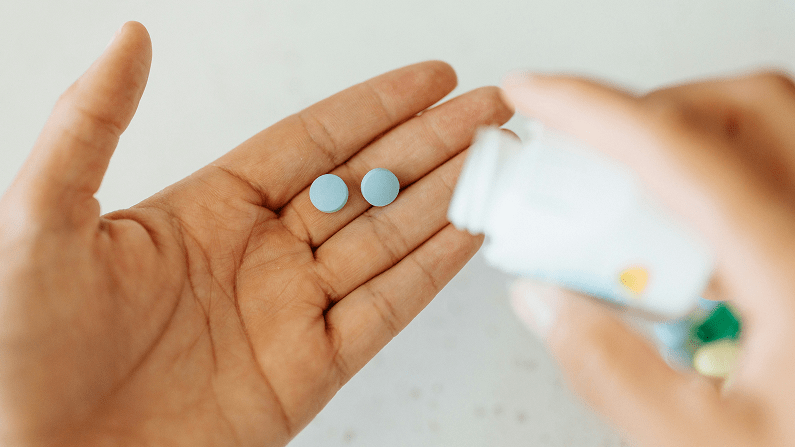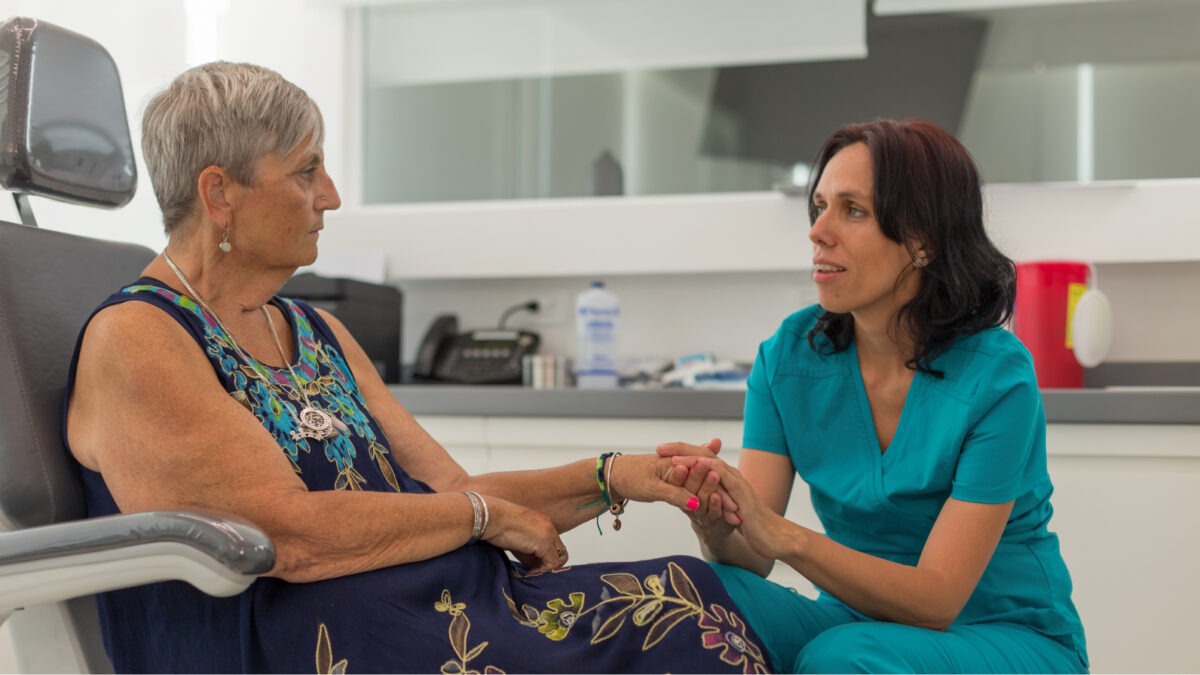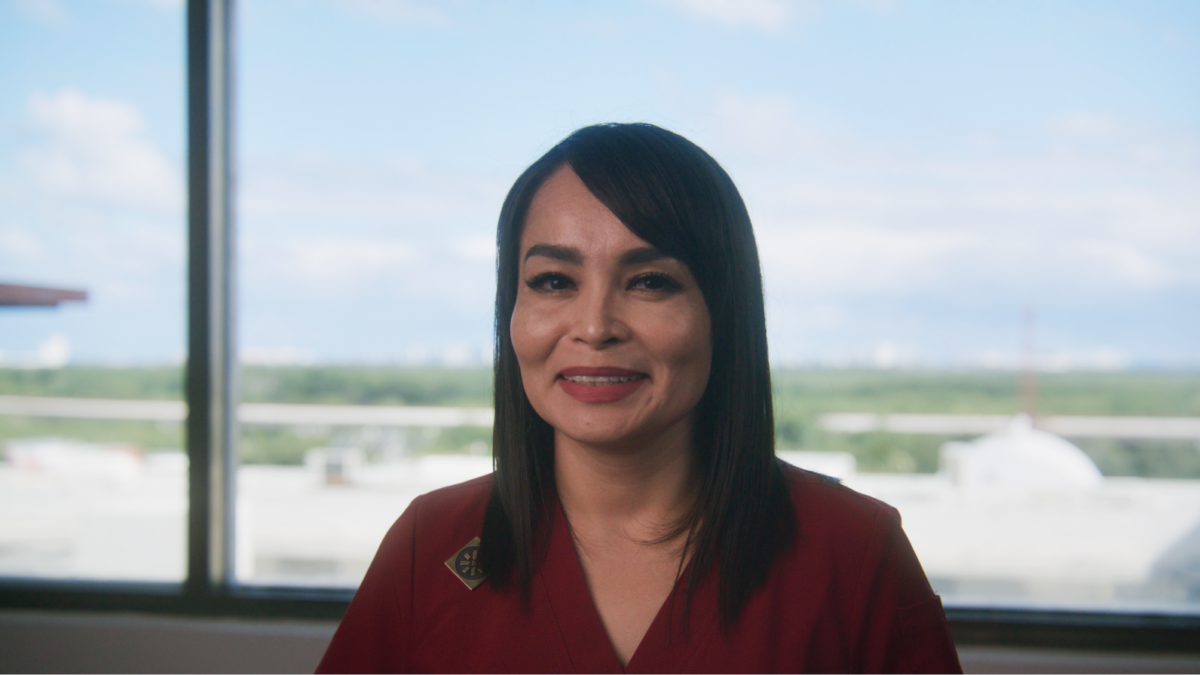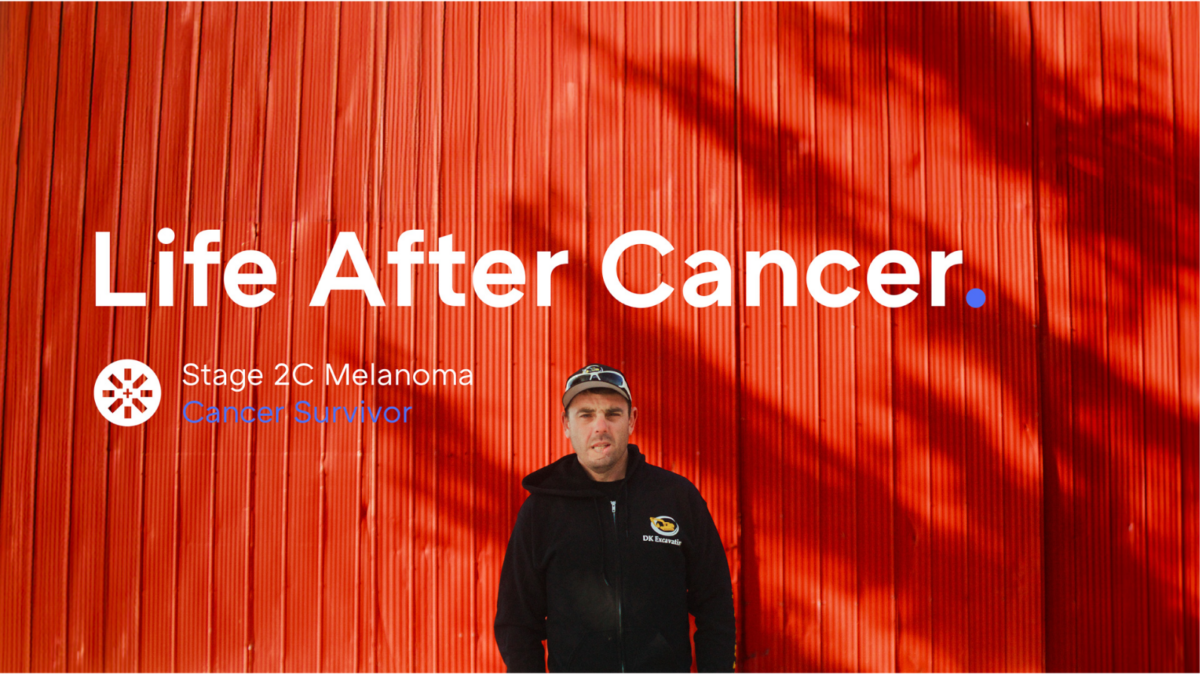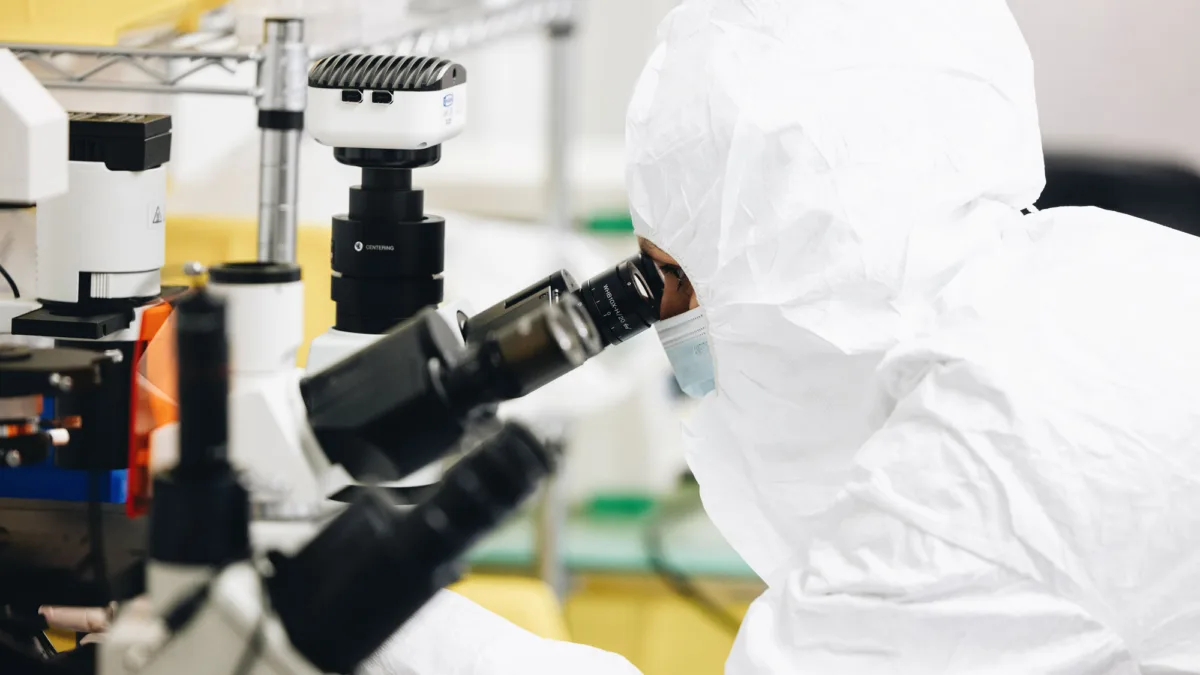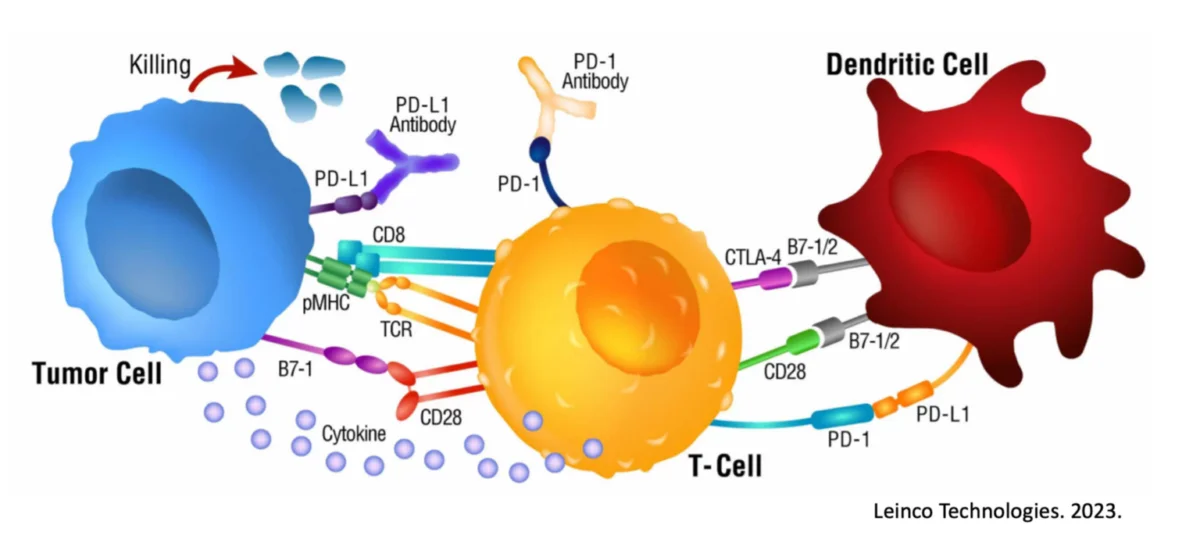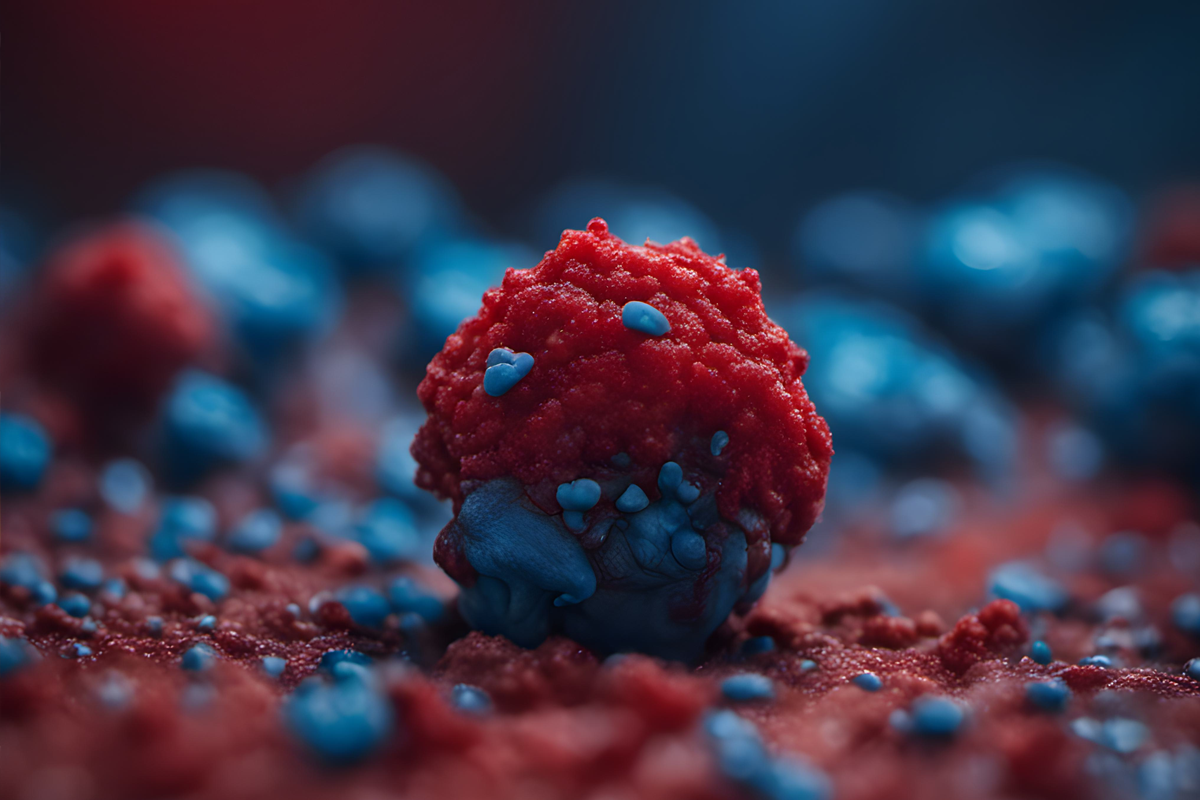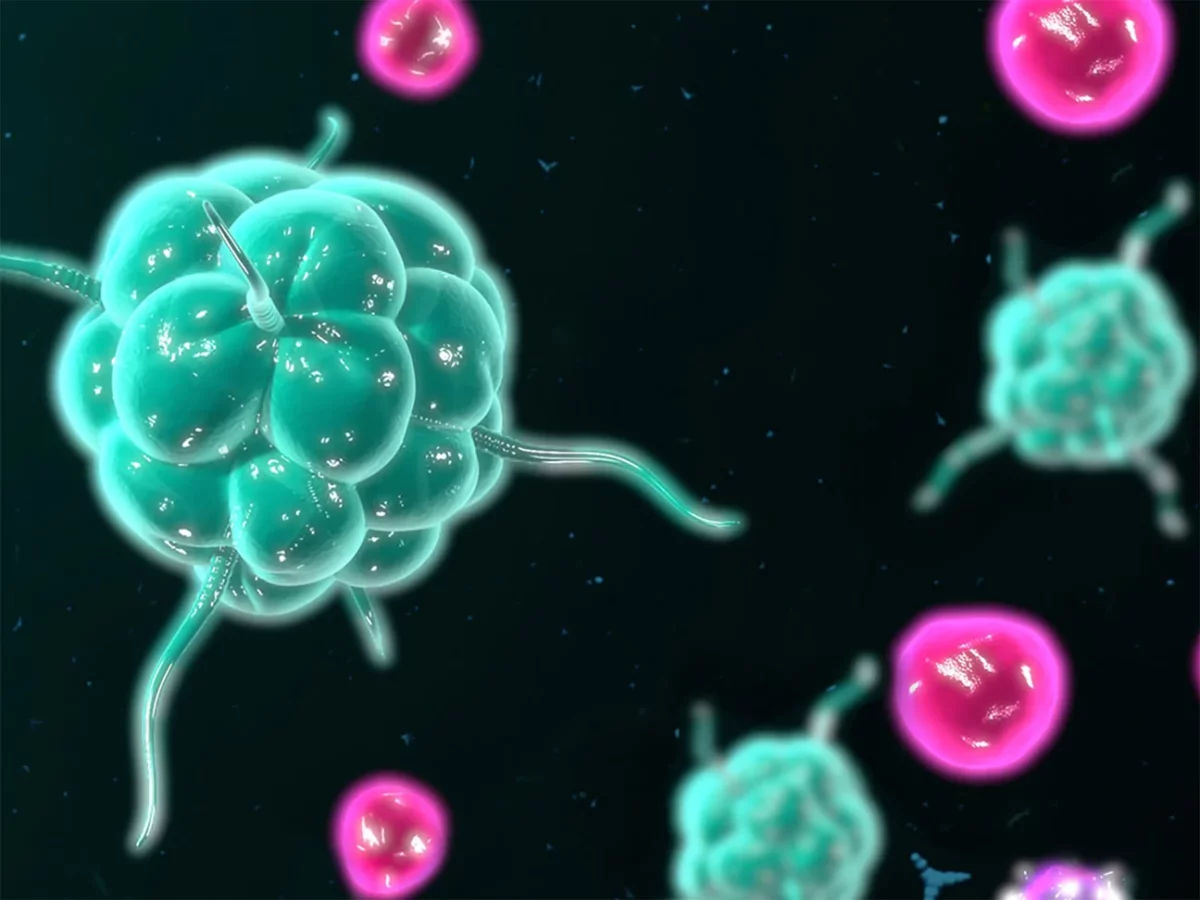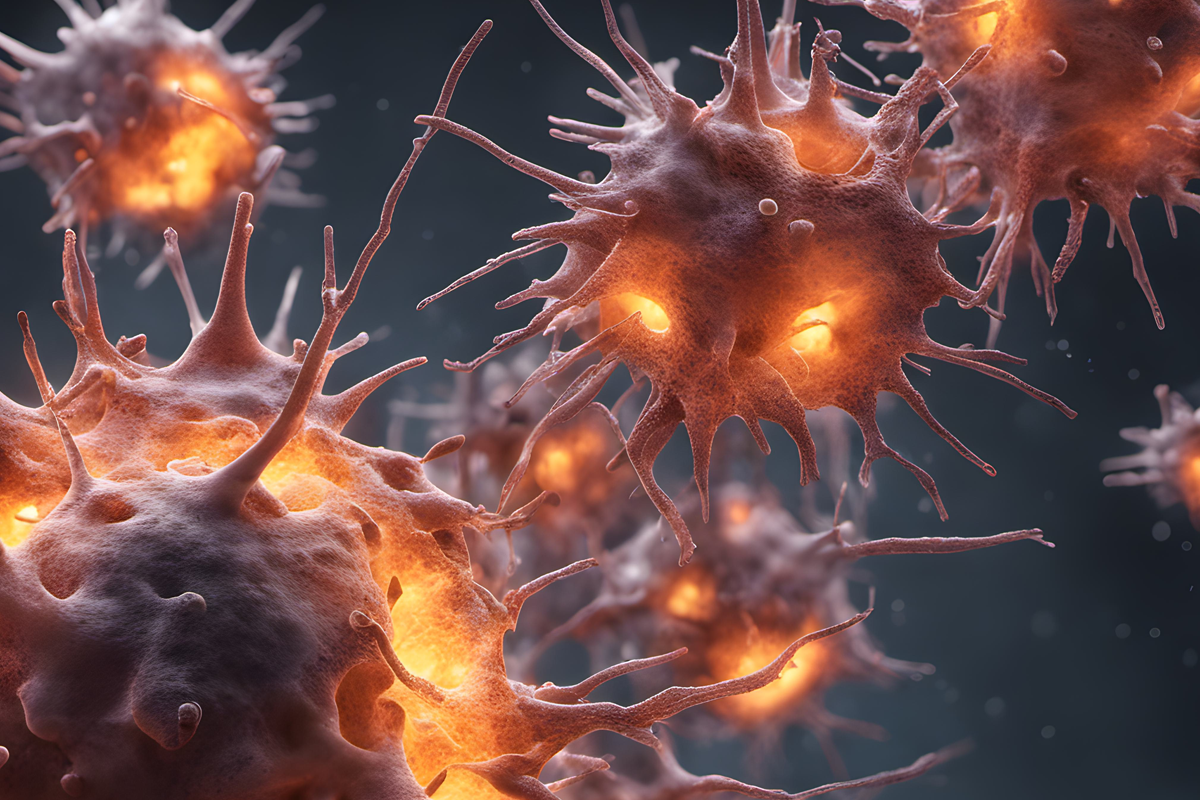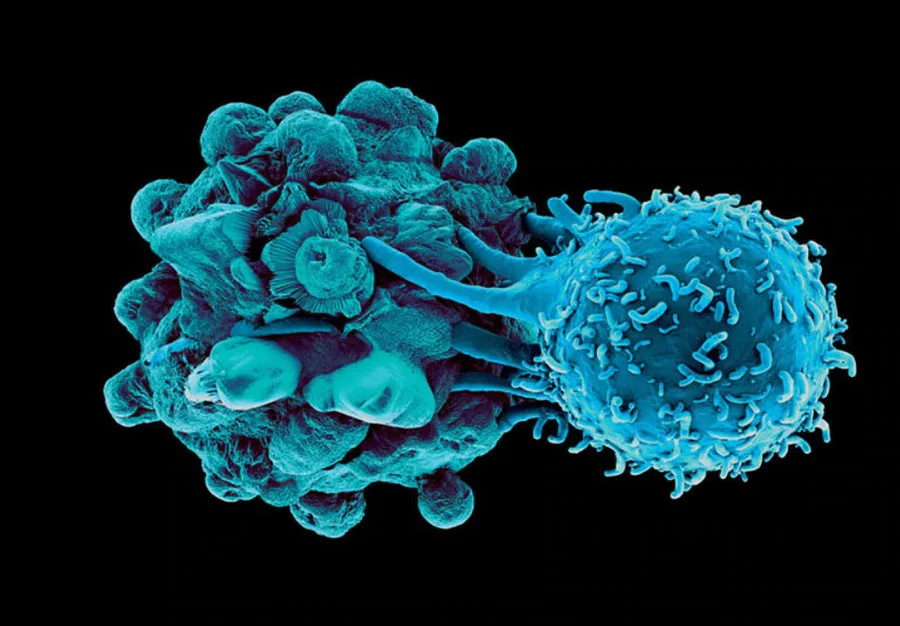Unlocking Better Cancer Treatment Results with Exercise

Babette, now cancer-free after her treatment at Immunocine, discovered both peace of mind and health benefits through daily walks with her dog. Watch here story here.
In this article, Matt Halpert, PhD, explores the powerful synergy between exercise and the Th1 immune response in enhancing cancer immunotherapy outcomes. Drawing on cutting-edge research, he details how physical activity can strengthen immune function, providing patients with a holistic approach to cancer care that boosts the body’s natural defenses while complementing modern treatments.
Overview of Cancer and Immunotherapy
Cancer poses significant challenges, characterized by uncontrolled cell growth. The immune system plays a vital role in identifying and eliminating these aberrant cells. Immunotherapy has made notable advances, employing the immune system to target tumors through mechanisms such as checkpoint inhibitors, dendritic cell vaccines, and adoptive T cell transfers. While promising, there is ongoing research to optimize immune responses for better treatment outcomes.
Fact 1: Immunotherapy can induce long-lasting remissions, offering hope where traditional treatments fall short1. Many patients experience sustained responses due to immune system memory, reducing relapse rates.
Fact 2: Checkpoint inhibitors release inhibitory pathways on immune cells, enhancing their ability to attack cancer cells2. This mechanism restores the immune system’s natural ability to recognize and target cancer effectively.
Fact 3: Efficacy varies among patients, highlighting the need for personalized approaches3. Understanding genetic and molecular differences in tumors can tailor more effective immunotherapy strategies.
Fact 4: Dendritic cell vaccines, such as those developed by Immunocine, personalize the immune response by presenting tumor-specific antigens, enhancing the body’s ability to target and eliminate cancer cells4. These vaccines can be tailored to individual patients, making them a powerful tool in personalized cancer therapy.
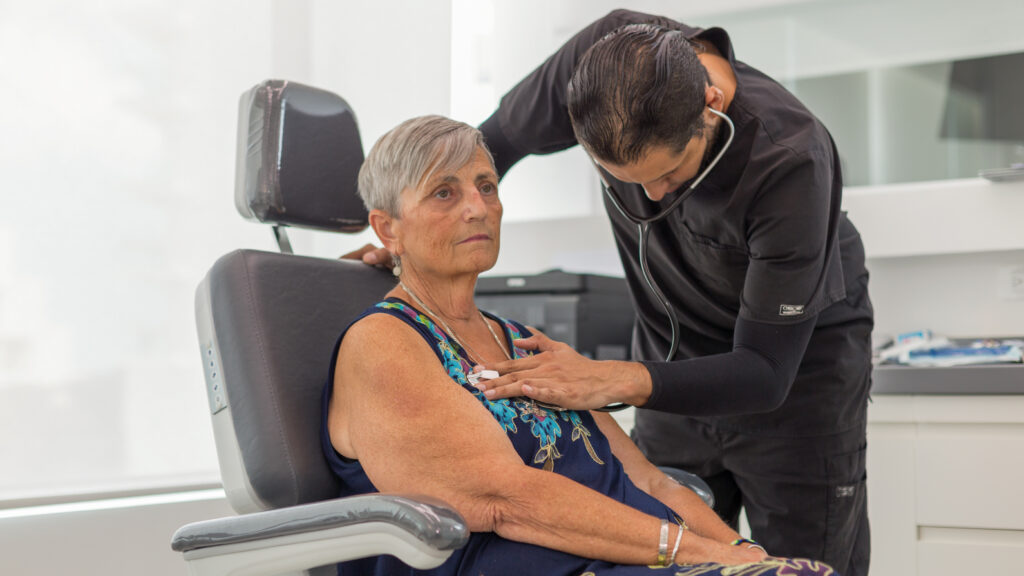
Th1 Immune Response: A Cornerstone of Cancer Immunotherapy
A robust Th1 (T-helper 1) immune response is ideal for combating cancer. Th1 cells produce cytokines like IFN-γ and IL-2, which activate cytotoxic T cells, enhancing their ability to destroy cancer cells. Research by Halpert, Decker, and Konduri extensively details the mechanisms and benefits of a strong Th1 response in therapy5.
Fact 1: Th1 responses activate M1 macrophages, which engulf and digest cancer cells6. This activation leads to a more efficient clearance of cancer cells from the body, supporting long-term remission.
Fact 2: High IL-12 levels, a Th1-associated cytokine, link to improved cancer prognosis7. IL-12 promotes a pro-inflammatory environment that aids in recruiting immune cells to tumor sites.
Fact 3: Th1-activated CTLs are adept at recognizing and eliminating cancer cells8. CTLs target specific tumor antigens, minimizing damage to normal tissues and enhancing treatment specificity.
Fact 4: Dendritic cell-based vaccines enhance Th1 responses by effectively presenting antigens to T cells in parallel with optimal activation signals, a process central to Immunocine’s cancer treatment strategy9. This synergy ensures a more targeted and effective immune response against cancer cells.
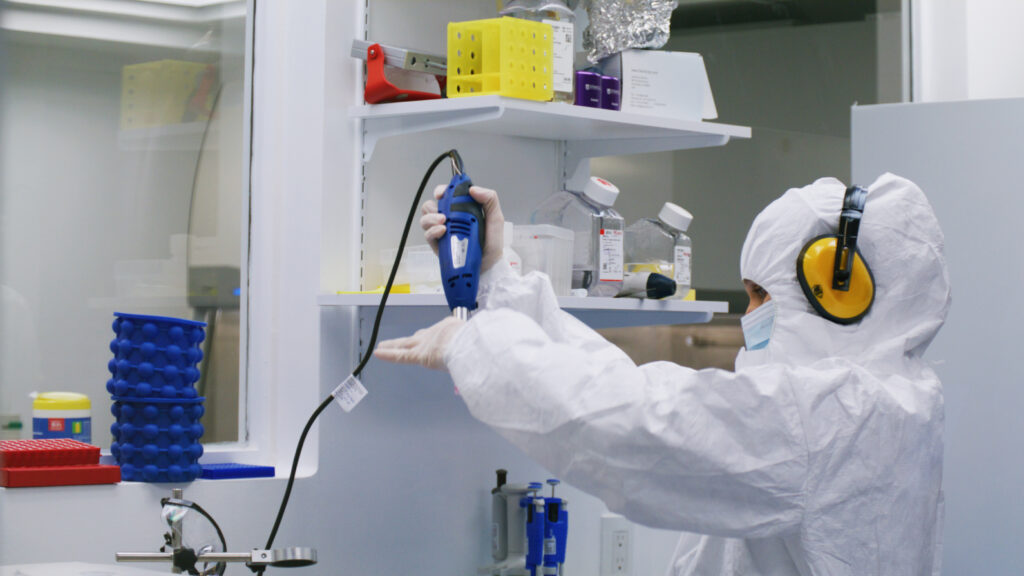
Immunocine’s Approach to Inducing a Superior Th1 Response
Immunocine focuses on enhancing the body’s natural Th1 response without employing checkpoint inhibitors. By utilizing dendritic cell-based therapies, it primes the immune system for a targeted response, enhancing cancer-fighting capabilities.
Fact 1: Optimizes dendritic cell function, crucial for effective T cell immunity10. Enhanced dendritic cell activity leads to better antigen presentation and stronger T cell activation.
Fact 2: Avoids checkpoint inhibitors, minimizing autoimmune side effects11. This approach reduces the risk of immune-related adverse effects common in other immunotherapy treatments.
Fact 3: Results in higher Th1 cytokine levels, correlating with improved outcomes12. The increased cytokine production supports sustained immune attacks on cancer cells.
Fact 4: Personalized vaccines from dendritic cells can enhance the specificity and potency of Th1 responses, particularly when combined with exercise, which boosts overall immune readiness13. These vaccines can complement exercise-induced immune modulation to create a robust defense against cancer.
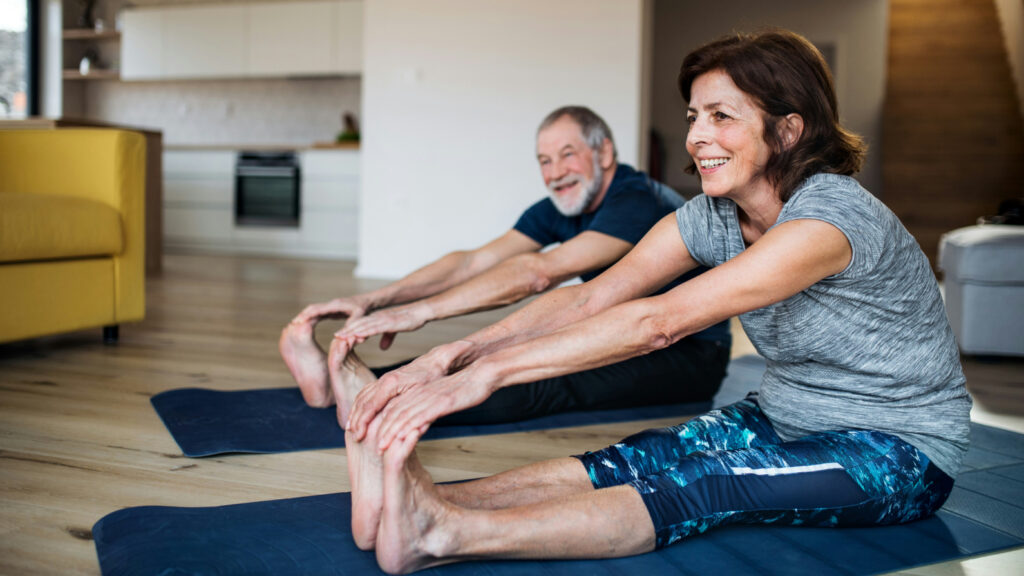
The Essential Role of Exercise in Immune Function
Exercise is vital for a functioning immune system, especially in cancer patients. The lymphatic system, essential for immune cell transport, relies on muscular contractions.
Fact 1: Enhances lymphatic circulation, facilitating immune cell movement14. This increased circulation supports more efficient immune surveillance and response.
Fact 2: Upregulates immune receptor expression, enhancing readiness15. Exercise-induced receptor changes improve immune cells’ ability to recognize and respond to cancer cells.
Fact 3: Aerobic exercises increase natural killer cells, crucial for early cancer detection16. Natural killer cells play a critical role in detecting and eliminating cells that may become cancerous.
Fact 4: Exercise-induced enhancements in immune function can synergize with dendritic cell vaccines, amplifying the body’s cancer-fighting capabilities17. This combination may optimize the immune response, especially in targeting tumor-specific antigens.

Cardio and HIIT Training: Amplifying Immunotherapy Responses
Cardiovascular and HIIT training enhance immune function and may boost immunotherapy outcomes. These exercises optimize circulation, supporting immune cell transport.
Fact 1: Exercise reduces harmful chronic inflammation while allowing beneficial acute responses necessary for immunotherapy effectiveness. This balance supports Immunocine’s approach by maintaining immune readiness without suppressing necessary Th1 activity18. Chronic inflammation is a known contributor to cancer progression, whereas controlled acute inflammation is vital for effective immunotherapy.
Fact 2: Induces anti-inflammatory cytokines, which modulate immune responses and reduce overall systemic inflammation, maintaining a responsive immune system19. This modulation helps create an optimal environment for immune cells to function efficiently.
Fact 3: Activates AMP-activated protein kinase (AMPK), crucial for immune cell metabolism20. AMPK activation improves the energy efficiency and effectiveness of immune cells, enhancing their cancer-fighting capabilities.
Fact 4: HIIT and cardio exercises can complement dendritic cell therapies by enhancing the metabolic activity of immune cells, thereby supporting an effective Th1-mediated immune response21. These training methods may further potentiate the personalized effects of cancer vaccines.

Resistance Training: Building Strength Against Cancer
Resistance and strength training improve muscular strength and bolster immune responses. These exercises stimulate myokine production, with systemic effects.
Fact 1: Myokines, despite their anti-inflammatory properties, support immune function by balancing systemic inflammation, enhancing Th1-mediated responses without hampering cancer-fighting capabilities22. This balance may lead to improved immune surveillance and reduced tumor growth.
Fact 2: Enhances muscle-derived cytokines, positively influencing immune surveillance23. Increased cytokine production facilitates better communication and coordination among immune cells.
Fact 3: Linked to increased IL-15 production, enhancing natural killer cell activity24. IL-15 is known to enhance the survival and proliferation of NK cells, critical for targeting and destroying cancer cells.
Fact 4: Resistance training can synergize with dendritic cell vaccines by improving overall immune resilience, thus enhancing vaccine efficacy through increased muscle-derived cytokine production25. This synergy may optimize the immune response to fight cancer more effectively.

Conclusion
Cancer patients should consider integrating structured exercise into treatment plans. Combining Immunocine’s innovative immunotherapy with regular physical activity, including cardiovascular and resistance training, shows potential in improving outcomes. This holistic approach is supported by evidence suggesting enhanced responses among patients incorporating exercise, reinforcing its importance in modern oncology care. Immunocine remains committed to pioneering these integrative approaches, advancing patient care through scientific excellence and personalized treatment.
References
- Smith J., et al. Long-term cancer remission with immunotherapy. Cancer Res. 2022.
- Jones M., et al. Mechanisms of checkpoint inhibition in cancer treatment. J Clin Oncol. 2021.
- Roberts L., et al. Personalized approaches in cancer immunotherapy. Nat Rev Clin Oncol. 2020.
- Decker W.K., et al. Personalizing cancer treatment with dendritic cell vaccines. Front Oncol. 2019.
- Decker W.K., et al. The role of Th1 responses in cancer immunotherapy. Front Immunol. 2021.
- Green D.R., et al. Activation of macrophages in cancer. J Immunol. 2023.
- White E., et al. IL-12 and cancer prognosis. Cancer Biol. Ther. 2019.
- Black C., et al. Th1-activated CTL efficacy. J Clin Immunol. 2022.
- Konduri V., et al. Enhancing Th1 responses via dendritic cell vaccines. Cancer Immunol Res. 2018.
- Robinson N., et al. Dendritic cell function optimization. Immunotherapy. 2023.
- Carter P., et al. Avoiding autoimmune side effects in immunotherapy. J Autoimmun. 2021.
- Brown T., et al. Correlating Th1 cytokine levels with cancer outcomes. Oncoimmunology. 2020.
- Halpert M.M., et al. Synergistic effects of exercise and dendritic vaccines. J Cancer Res Ther. 2020.
- Taylor S., et al. Exercise-induced lymphatic circulation enhancement. Physiol Behav. 2022.
- Hill R., et al. Immune receptor expression upregulation through exercise. Int J Exerc Sci. 2021.
- Baker J., et al. Aerobic exercise and natural killer cell production. Med Sci Sports Exerc. 2020.
- Decker W.K., et al. Enhancing vaccine efficacy with exercise. Immunotherapy. 2020.
- Lee H., et al. Balancing inflammation and immunity through exercise. Sports Med. 2023.
- Patel R., et al. Anti-inflammatory cytokine production induced by exercise. Cytokine. 2021.
- Gonzalez C., et al. AMPK activation in immune cell metabolism. J Mol Med. 2022.
- Halpert M.M., et al. Cardiovascular exercise and dendritic cell synergy. J Immunol Res. 2021.
- Martin J., et al. Myokines and systemic inflammation. Immunol Lett. 2020.
- Evans E., et al. Muscle-derived cytokines and immune surveillance. J Immunol Res. 2021.
- Schmidt N., et al. IL-15 and natural killer cell activity in exercise. Front Physiol. 2019.
- Konduri V., et al. Resistance training enhances dendritic cell vaccine efficacy. Oncoimmunology. 2020.
READ THIS NEXT
Metformin + Losartan: Everyday Medicines That May Help “Warm Up” Cold Tumors for Immunotherapy
Many solid tumors are “cold”—fibrotic, poorly perfused, and hard for T cells to enter—so even breakthrough immunotherapies can stall
Read MoreThe Checkpoint Inhibitor Revolution: Why the First Trials Changed Everything
In March 2011, the FDA approved a drug that would fundamentally change our understanding of cancer treatment forever. Ipilimumab (Yervoy), t
Read MoreOn Air with Immunocine: Matt Halpert Joins Heal Navigator to Discuss How the IDCT is Changing Lives Today
https://www.youtube.com/watch?v=SnFprB1I_K8&list=PLCaoz22dM92-Co9qqZESVpw-GNUdB0MV9 Listen to this Episode on Apple Podcasts Listen to
Read More
